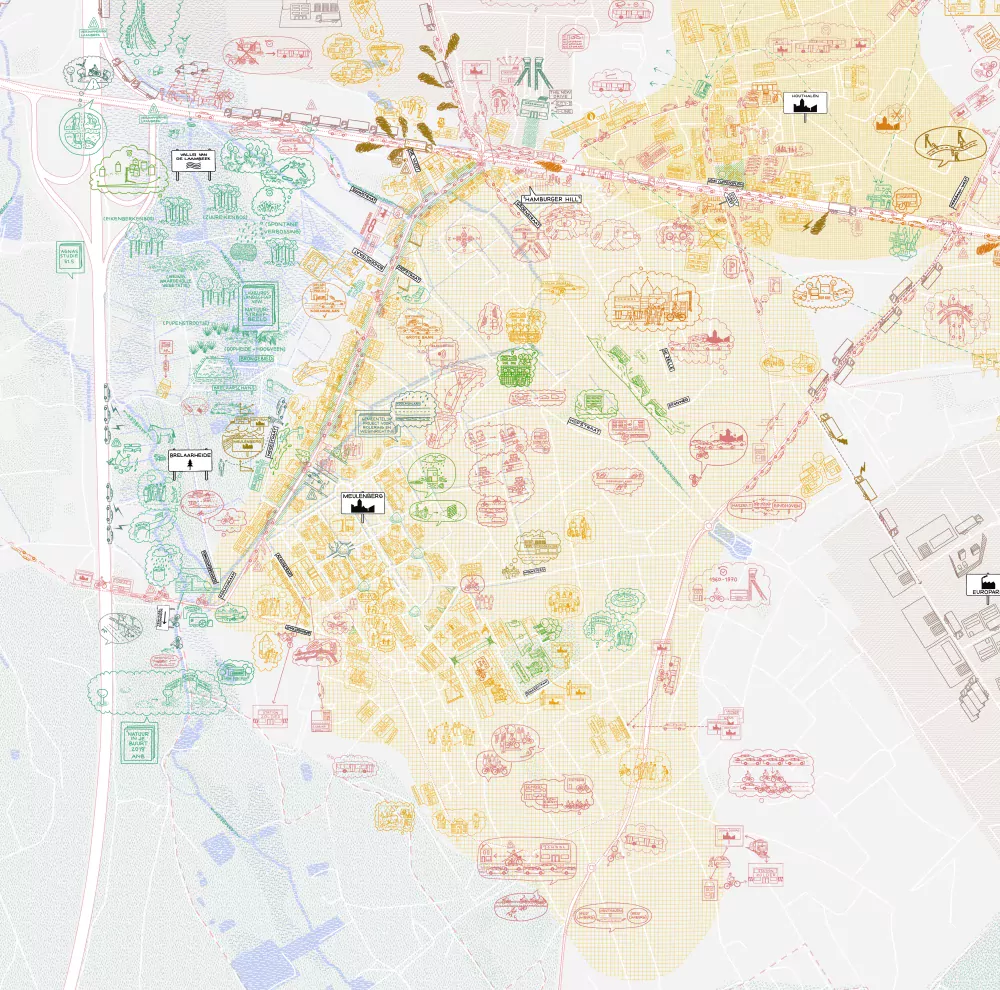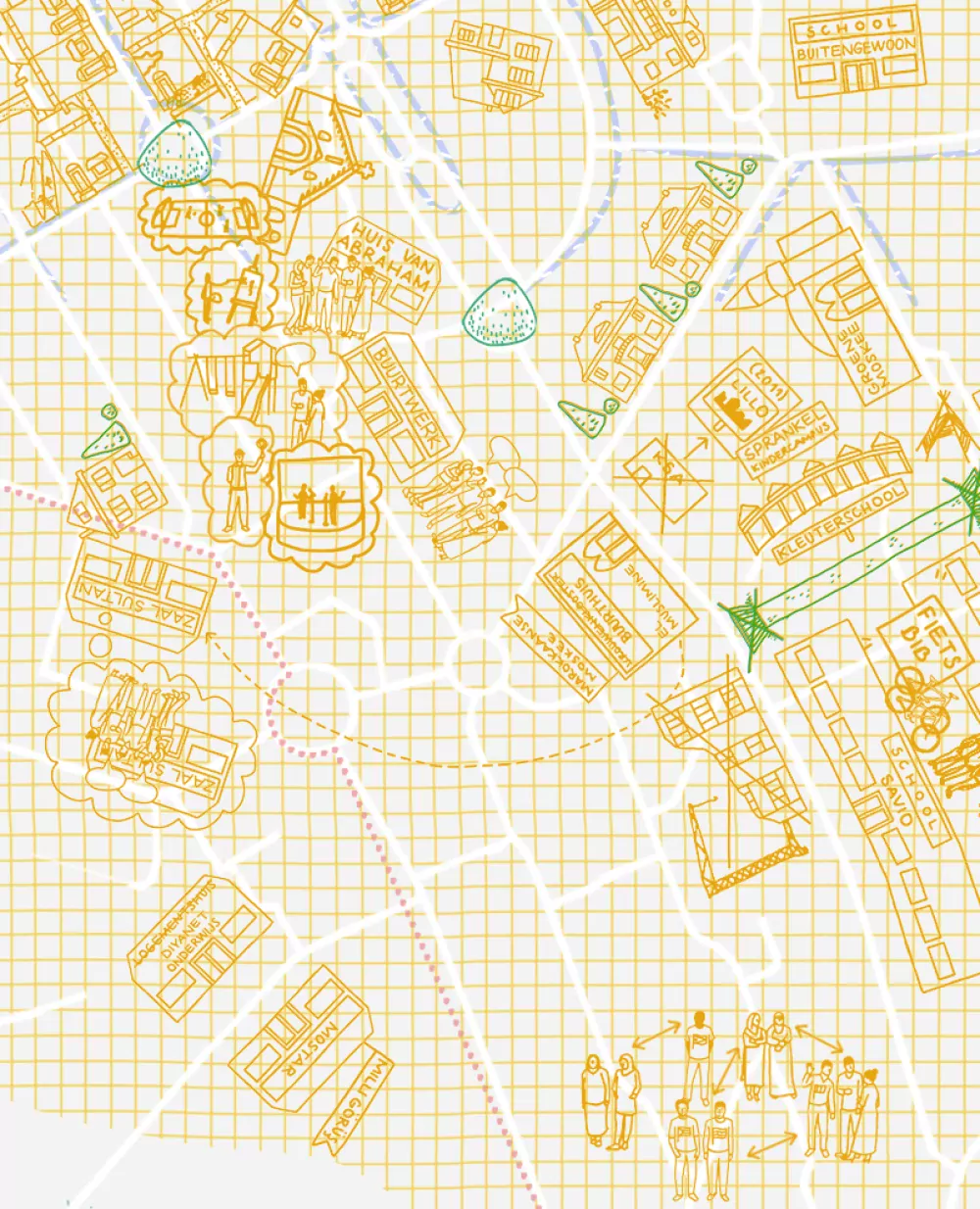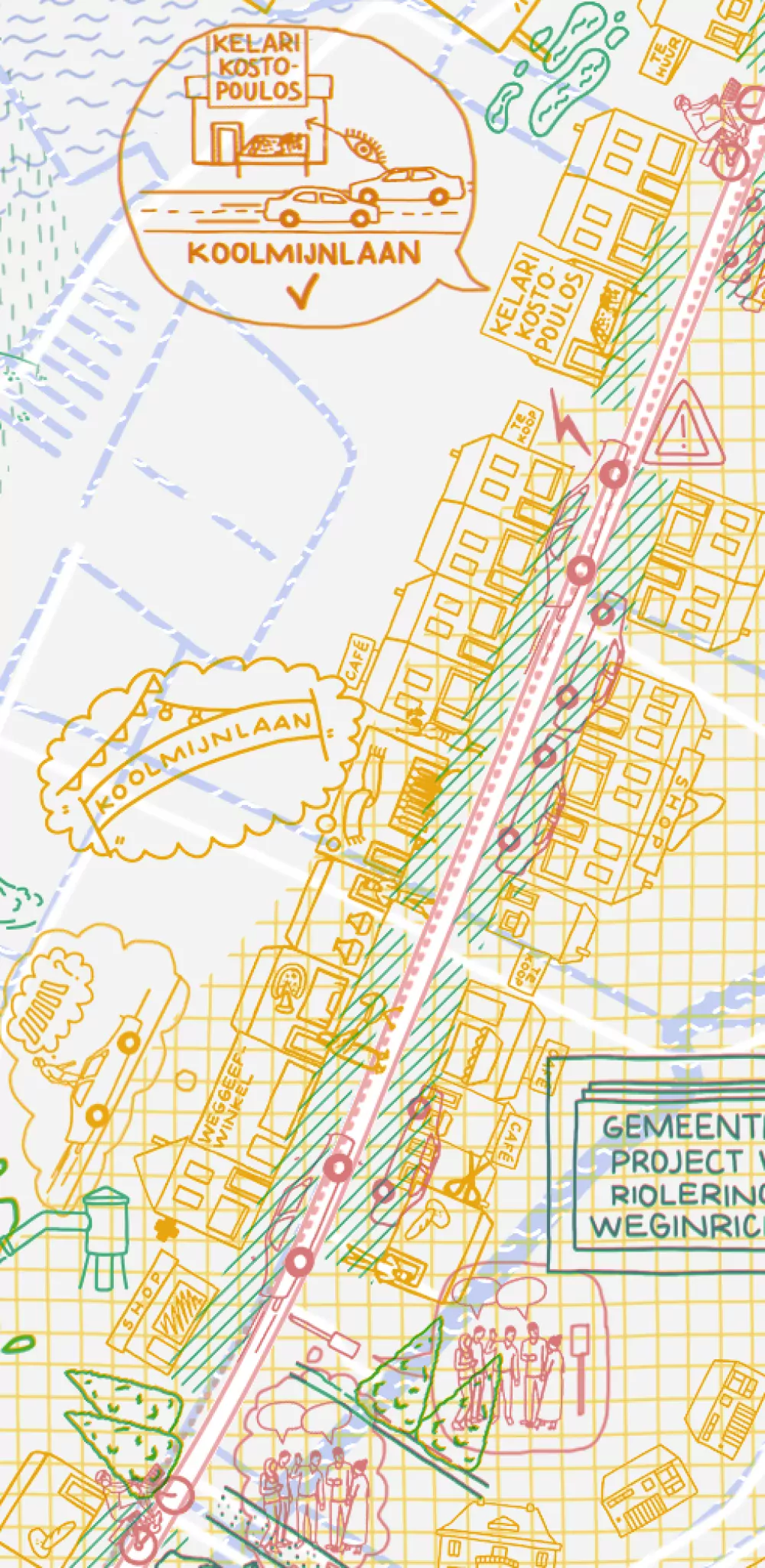North-South Limburg in Translation - Correspondences between Neighbourhoods and Large-Scale Spatial Transformations
Description
This case-study presents the first insights of an inquiry through interviews and observations into the aspects of translation between the daily life of neighbourhoods and the demands of a large-scale spatial project on the national road N74 (North-South Limburg) in the North of the Belgian province of Limburg. One particular case that Hasselt University researchers, part of the North-South Limburg team, looked deeper into is Meulenberg (Houthalen-Helchteren), a ‘cité’, a former mining agglomeration located to the east of the N74. The questions this chapter tries to tackle have to do with the “borders” Meulenberg has to deal with, and with the opportunities a larger research project does or does not offer to transgress these borders. Specific challenges Meulenberg has to confront are the internal and external spatial and discursive borders that exist between local communities, but also between local communities and ‘outsiders’, that inhibit action on certain issues at stake in the neighbourhood. It is found, however, that the spatial concept of the ‘common ground’, the everyday meanings that inhabitants attach to and around the built patrimony of the ‘cité’ and the re-appropriation of this patrimony by existing bottom-up initiatives hold significant potential for designers to translate across these borders. Standards such as kilogrammes, metres, and hours suggest objectivity and independence from a given context. Reduced to a shareable consensus, they allow us to navigate across the variety of individual contexts and perspectives. Nevertheless, their meaning only unfolds in relation to a specific situation, object, space, or time. In that sense, learning and understanding is less about knowing stable facts and more about being able to listen to how everything continuously changes in relation to something else. The performative installation School of Fluid Measures explores the concept of market place as a third space for performative “translations”. It invites participants to reflect on human values, not theoretically but through silent yet embodied experiences as interactive negotiations with sand in space and time. Thereby fixed standards and positions are dissolved through scored interactions that leave traces in coloured sand. The colours represent exemplary social values as resources to debate, distribute, and fuse into new colours and values. The sand serves as a fluid medium for negotiations, expressed as patterns that emerge through an exploratory measure of the fluidity of meanings. Through an embodied process that surfaces situative intentions and relations, the sessions each invite participants to negotiate the relation between two colours and values and a chosen situation of daily life. As a series of performative negotiations, this installation can be perceived as a collective learning process. In School of Fluid Measures, knowledge unfolds over time, over the course of a conversation, and over the course of an exhibition.
Links
Email: roel.deridder@uhasselt.be
Website: uhasselt.be/UH/Arck-onderzoek/Spatial-Capacity-Building.html



_HighRes-converted.webp)